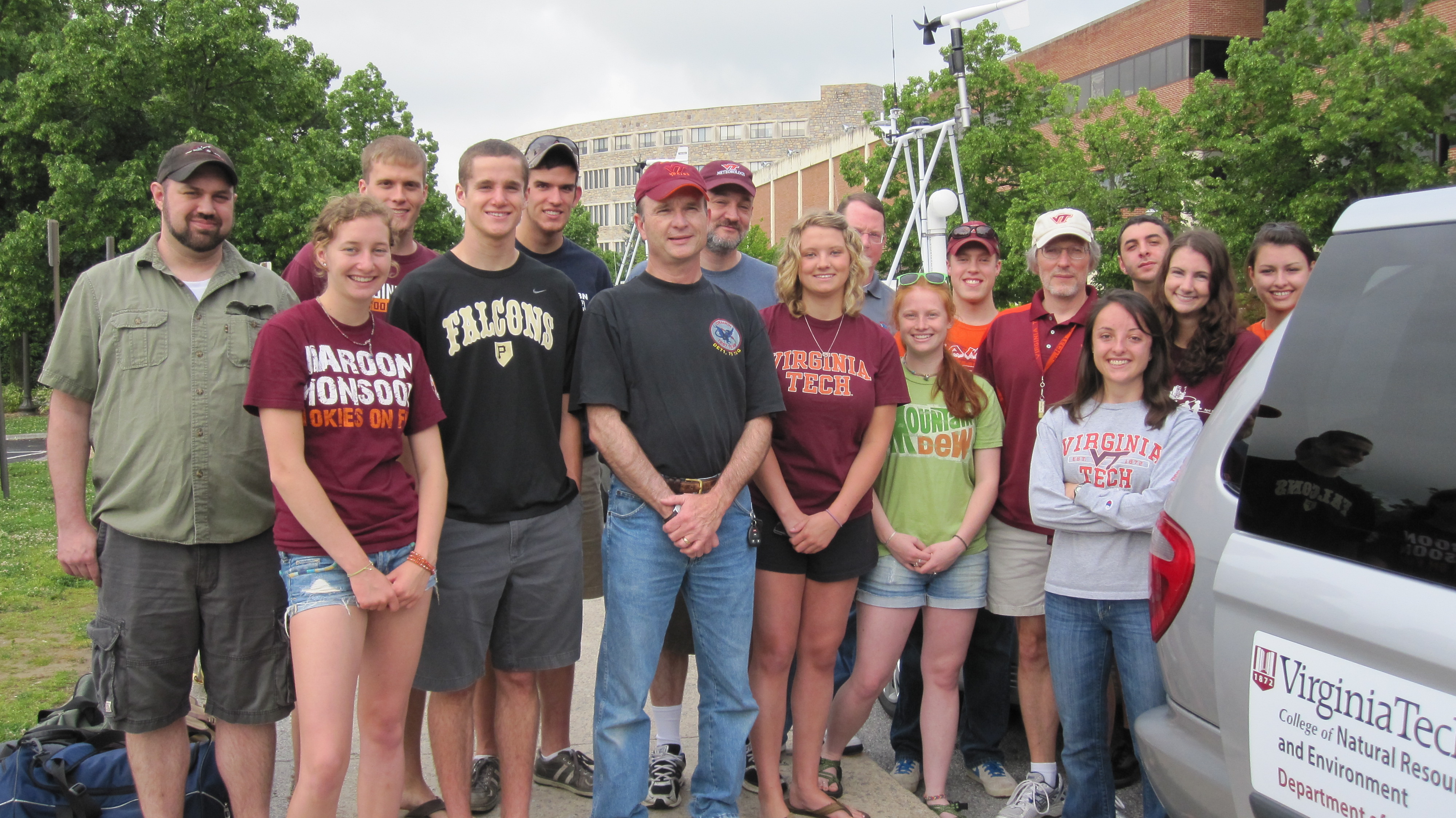Virginia Tech storm chasers hit the road

Virginia Tech’s well-known Storm Chase Team leaves Blacksburg on May 15 to head for Nebraska and other Midwestern points to search for tornadoes and large storms they can track and record data for study. The team needs to reach western Nebraska by the afternoon of May 16 to intercept predicted storms there.
Under the direction of Dave Carroll, geography instructor for the College of Natural Resources and Environment, the team uses advanced storm tracking equipment while adhering to protocols that protect their safety. They will be sending video to the weather crew at WDBJ-TV 7, which will air reports when the team finds significant storms. A second team will go out later this season.
This January, the college started its full-fledged meteorology degree program with 45 students; fall admissions will swell that number to nearly 80. The new bachelor of science in meteorology prepares students for careers in meteorology and weather forecasting with a significant focus on geospatial information technology (consisting of geographic information systems and remote sensing), and unites data from both the natural and human environments.
Virginia Tech’s Department of Geography has offered Bachelor of Arts and Master of Science degrees in geography with course and research options in geospatial technology for 24 years and a Ph.D. program in geospatial and environmental analysis since 2006. In addition to building on this base, the new program is leveraged by its close proximity to the National Oceanic and Atmospheric Administration’s National Weather Service Forecast Office at the Virginia Tech Corporate Research Center in Blacksburg.
Students learn to predict severe weather and, very significantly, to link its impacts (floodwaters, soil loss, or avalanche danger) on ground features and on the human environment — a new area of research needed by the Weather Service, with which Virginia Tech is partnering to create new models.
The new degree program is part of much broader change in the College of Natural Resources and Environment. Dean Paul Winistorfer said, “To meet the needs of today’s world and to prepare our students to be leaders in the natural resources and environmental arena, we are focusing our programs on the critical issues of sustainability, climate, and water. The new Bachelor of Science degree in meteorology touches on our existing programs in forest growth, forest resources and environmental conservation, wildlife and fisheries conservation, and biomaterials.”
- Track the Hokie Storm Chasers on their blog and tracking site.
- Follow the Hokie Storm Chasers on Twitter and Facebook.
- Read posts on Kevin Myatt’s Weather Journal. The Roanoke Times weather columnist, a frequent guest and co-leader on the Storm Chase Team, is attending both of this year’s trips as an adjunct instructor.


